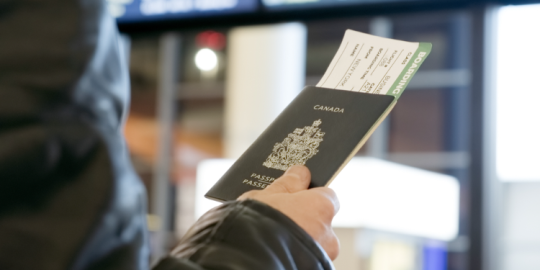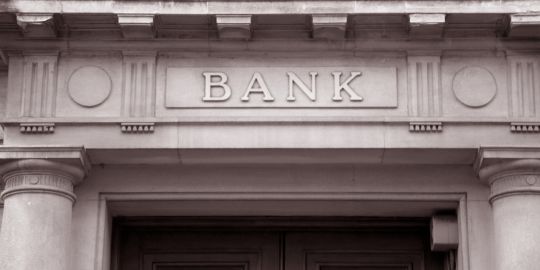Risks you may encounter in a country with an unsafe banking system
If you use your foreign credit card in a country that doesn't have the safest banking system, you may be exposed to the following risks:
Lack of security measures
The country's banking system may not have good ways to protect your personal and financial information. This can make it easier for malicious people to steal your identity or use your credit card without permission.
One such example is Nigeria, where the banking system has faced challenges implementing robust security measures. Instances of phishing scams, where individuals receive fraudulent emails or messages requesting personal information or account details, have been prevalent in Nigeria. Additionally, Nigeria has experienced cases of card cloning and ATM skimming, where criminals obtain card information and use it for fraudulent purposes.
Weak cybersecurity
The country's banking system may not have strong protection against cyberattacks. This means your financial accounts could be hacked, and someone could gain unauthorized access to your money or personal data.
In 2016, the Central Bank of Bangladesh fell victim to a sophisticated cyber heist. Cybercriminals gained access to the bank's systems and attempted to steal nearly $1 billion by making fraudulent transfer requests. While some of the attempted transfers were blocked, approximately $81 million was successfully transferred to multiple bank accounts around the world.
In recent years, Mexico has also experienced increased cybersecurity incidents targeting the banking sector. One significant threat is ATM skimming, where criminals install skimming devices on ATMs to steal customers' card information. Additionally, banking malware such as the "Ploutus" and "Padpin" families have been used to compromise ATMs and enable attackers to dispense cash remotely.
Limited fraud protection
In countries with unsafe banking systems, there may be few or ineffective measures to help you if you become a victim of fraud. It could be hard to dispute unauthorized charges or get your money back.
For example, in Nepal, some individuals have faced challenges with limited fraud protection in the banking sector. In cases of unauthorized transactions or fraudulent activities on their bank accounts, customers may encounter difficulties disputing charges or recovering their funds. For instance, if a Nepalese banking customer falls victim to a phishing attack or their debit/credit card is compromised, the process of reporting the fraud and initiating a chargeback may be complex and time-consuming.
In such situations, customers may face an uphill battle to prove their innocence, and the burden of proof may rest heavily on them.
Currency restrictions
Some countries might have strict rules about using foreign currencies or making international transactions. This could limit your ability to access your money or use your credit card abroad.
For instance, in Venezuela, due to the economic crisis and unstable banking system, the government has imposed strict currency restrictions. An expat living in Venezuela may have difficulty withdrawing cash from ATMs using their foreign debit card due to limited access to foreign currencies. They may also run into challenges in making online purchases from international websites, as the government imposes restrictions on converting the local currency (bolivar) to foreign currency.
Exchange rate fluctuations
The value of the local currency might change a lot in countries with unsafe banking systems. This can make it hard to predict how much money you'll spend when using your credit card.
A good recent example of this is Turkey. On June 7, 2023, the Turkish lira experienced a substantial drop, plummeting by 7% to reach a record low. This decline marked the largest daily selloff since the notable crash in 2021. The devaluation of the currency affects expats in various ways, particularly in terms of their financial stability, purchasing power, and international transactions.
One major impact is on the cost of living for expats. As the Turkish lira depreciates, the prices of goods and services denominated in foreign currencies, such as rent, imported products, or even everyday essentials, may increase substantially in local currency terms.
Furthermore, expats in Turkey may encounter difficulties when it comes to international transactions. With the currency's depreciation, the cost of converting Turkish lira into foreign currencies for sending money abroad or making international purchases increases. Expats may find themselves receiving less money when transferring funds to their home countries or facing higher fees for foreign exchange transactions.
Common types of debit and credit card fraud — and how to avoid them
ATM skimming: installing a device on an ATM that captures card data and PINs when users make transactions. Be cautious of ATMs in unfamiliar locations and check for any signs of tampering or suspicious attachments before using them.
One expat in Bali (Indonesia) advises always checking ATM machine card slots before using them, as there have been instances of fraudsters attaching card reading machines to ATMs in popular tourist spots on the island.
Card cloning: fraudsters use card skimmers or compromised point-of-sale (POS) systems to obtain card information, which they then use to create cloned cards. Expats should keep an eye on their cards during transactions and monitor their bank statements for any unauthorized charges.
Phishing scams: scammers may send emails or messages pretending to be from a bank or credit card company, asking for personal information or account details. Expats should be wary of sharing sensitive information online and should verify the authenticity of any communication received before responding.
SIM card swapping: criminals target expats by tricking the mobile service provider into transferring the victim's phone number to a new SIM card under their control. This enables them to intercept verification messages and gain access to online banking or credit card accounts. Contact your mobile service provider immediately if you experience a sudden loss of network connectivity.
Wi-Fi hacking: fraudsters may set up fake Wi-Fi hotspots in public places to steal login credentials or financial information from unsuspecting users. Avoid using public Wi-Fi networks for financial transactions and instead, use secure networks or mobile data.
One expat shared a story of having their Skype account logins hijacked on a public train in Germany while she was trying to connect to Wi-Fi. Hijackers then sent messages to her contacts saying that she lost her card while traveling and asking for money.
Card Not Present (CNP) fraud: This type of fraud occurs when a stolen card's information is used to make online or over-the-phone purchases without the physical presence of the card. Closely monitor your card statements for any unauthorized transactions and report them to the bank immediately.
Dynamic Currency Conversion (DCC): while not necessarily a scam, DDC is a way for some banks to charge high currency conversion rates on foreign credit card transactions. You may see DCC as an option when trying to withdraw money from an ATM or using your credit card to make purchases abroad. If you do see this option, opt for NO DCC or select paying in local currency — this will help you avoid additional currency conversion rates.
Final thoughts
Using your credit card in a country without a secure banking system can sometimes be risky. Make sure to do proper research on your destination or check local expat forums to be fully aware of potential dangers. It's important to be careful and think about other ways to pay, like prepaid cards or local banks, to reduce the risks.
Also, keep in touch with your credit card company, watch your transactions closely, and learn about the local financial situation. Doing these things will help you make smart choices and keep your money safe.
















